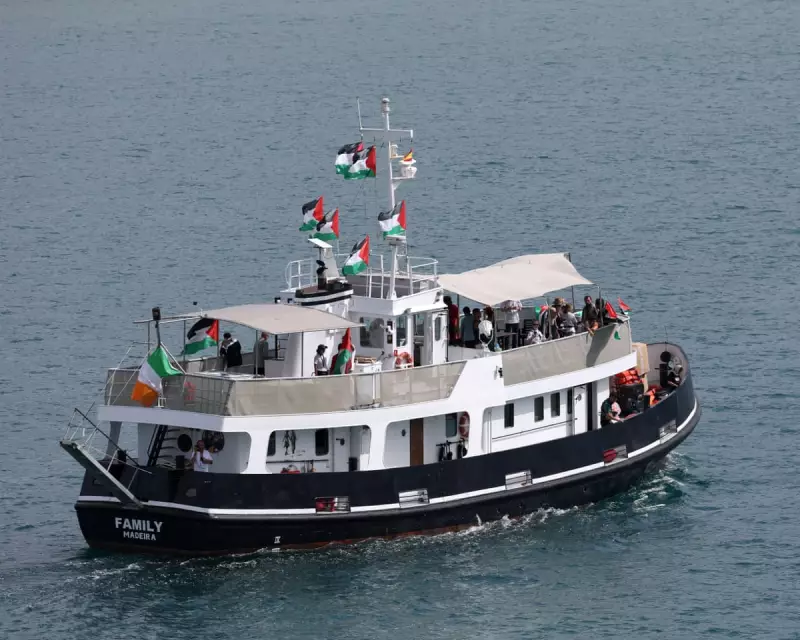
Dozens of international activists detained by Israeli forces after attempting to breach the Gaza naval blockade are facing imminent deportation while describing increasingly dire conditions within their detention facilities.
According to multiple accounts from detainees and their legal representatives, those being held at Israel's Givon prison near Ashdod are enduring severe overcrowding, with up to 15 people sharing cells designed for six inmates. The situation has reportedly created unsanitary conditions and mounting health concerns.
Medical Neglect and Communication Blackout
Several detainees have reported being denied essential medical treatment, including a Canadian activist requiring thyroid medication and a British passenger with a heart condition. Family members abroad describe being unable to establish contact with their loved ones, creating what one relative called "an information vacuum that's causing tremendous anxiety."
"The conditions are deliberately harsh," said Eitay Mack, an Israeli human rights lawyer representing several detainees. "They're using this treatment as a deterrent against future solidarity missions."
Accelerated Deportation Proceedings
Israeli authorities have moved swiftly to process deportations for the majority of the 112 activists detained during Monday's interception of the humanitarian flotilla. The operation saw Israeli naval forces board multiple vessels in international waters approximately 100 miles from the Gaza coastline.
An Israeli government statement confirmed that deportation flights were being arranged for activists from numerous countries, including:
- United Kingdom
- United States
- Canada
- Various European nations
- Australia
The statement defended Israel's actions as "necessary to maintain security and prevent unauthorized entry to Gaza," while accusing flotilla organizers of "seeking confrontation rather than providing genuine humanitarian assistance."
International Response and Legal Challenges
The detention conditions have drawn sharp criticism from human rights organizations and several foreign governments. The United Nations Human Rights Office has called for "immediate access to monitor treatment of detainees" while urging Israel to ensure "humane conditions consistent with international standards."
Legal representatives for the activists are preparing multiple challenges to the deportations, arguing that Israel's blockade of Gaza constitutes collective punishment and that the flotilla's humanitarian mission should be protected under international law.
As deportation proceedings continue, families of detained activists remain in anxious limbo, uncertain when they might be reunited with their loved ones or what long-term consequences the detainees might face from their participation in the controversial mission.





